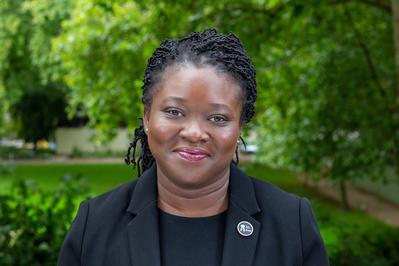Yaa Dankwa Ampadu-Sackey

Tell us about your background and why you decided to become a barrister.
I grew up in Ghana, a country known for its repressive regime and infringement of rights of the masses during military rule. I was both inspired and amazed by lawyers who used their legal expertise to fight for justice, often risking their lives in the process. In the UK, I am equally inspired by barristers taking on the fight against all threats to justice. This inspired me to become a barrister, as I understood that barristers are catalysts for change. They are usually the first to notice deficiencies in the law when taking on cases, and then proceed to challenge those in court on behalf of their client. I understood the solemnity of the responsibility I would be taking on in advising and representing clients.
Did you face any obstacles along your journey to becoming a barrister and how did you overcome them? Have any of them persisted since becoming a barrister?
I am a first-generation immigrant with no connections to the legal profession. This proved to be the main obstacle in my journey to becoming a barrister. During my Bar course, I had to work in two part-time positions to support me financially, raise money to renew my visa and pay for my upkeep. Consequently, I was unable to engage in networking that could have benefited me socially, professionally, and academically.
The issue regarding networking is ongoing. To mitigate this I regularly attend seminars and events where I have the opportunity to speak to colleagues and learn from their experiences.
What opportunities, support and encouragement did you receive along your journey to becoming a barrister?
During the early years of my journey (from 2007 onwards) I did not receive any support and encouragement from the profession. My friends and family were not in the position to support me due to lack of exposure to the legal profession. However, in recent times I have been supported with various schemes from the Inns which have assisted me greatly in my journey to becoming a barrister. One key support is the mock pupillage interview scheme, which allowed me to receive an objective assessment of my presentation skills in an interview.
What is the most rewarding thing about being a barrister; has life at the Bar met your expectations?
Life at the Bar has exceeded my expectations. I am a self-employed barrister and I thoroughly enjoy the opportunity to manage my time. I have been able to work as a full-time barrister as well as continuing to be a full-time mother to my young children. The work-life balance suits me perfectly.
How do you use your experience of coming to the Bar from an under-represented background to support those seeking to do the same, and/or why is it important for barristers to contribute in this way?
Aspiring barristers from under-represented backgrounds need to see and hear from members of the Bar who have similar backgrounds to theirs. They will be able to identify with their experiences and be convinced that a career at the Bar is achievable for persons with their backgrounds.
I come from an under-represented background as an international candidate, and I regularly attend outreach events at the Inner Temple to speak with students about my experience.
How do you think the challenges around social mobility at the Bar which face aspiring barristers today could be addressed?
There ought to be collaborative efforts between all the Inns and the Bar Council to raise awareness that a career at the Bar is dependent on ability and not social characteristics. Presently each Inn has a scheme aimed at social mobility, but these efforts are not unified across all Inns so aspiring barristers receive different levels of support. This should not be the case.
What advice would you give to someone from an under-represented background, seeking to succeed at the Bar?
To aspiring barristers from under-represented backgrounds, I will say that a career at the Bar is achievable. What is needed is determination and perseverance. In addition to that seek out support, help and guidance from as many sources as possible.
Yaa Dankwa Ampadu-Sackey is a barrister at Lamb Building